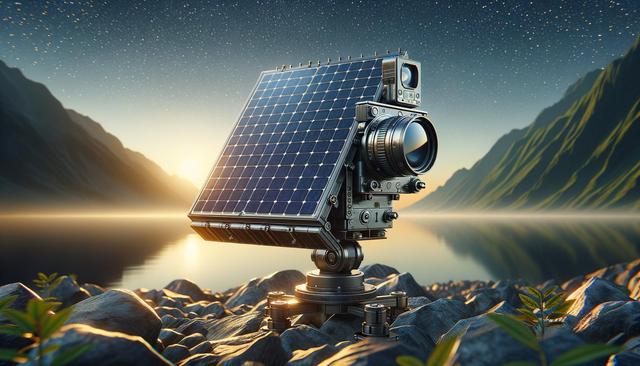Understanding Solar Cameras
Solar cameras have revolutionized the way we think about surveillance, especially in areas where traditional electricity or wiring options are not readily available. These devices harness solar energy to power themselves, reducing the reliance on electrical grids and lowering energy costs. Their core advantage lies in their independence from external power sources, making them a suitable option for remote locations or temporary setups. But beyond their environmental benefits, do they stand up to daily operational demands?
The mechanisms behind solar cameras involve photovoltaic panels that convert sunlight into electrical power, which is stored in batteries for continuous operation. This setup can provide a reliable power source as long as sunlight is accessible, making these cameras particularly effective in sunny climates. However, potential users should consider seasonal variations and the presence of obstacles that could block sunlight, impacting the camera’s effectiveness.
Advantages of Solar Cameras
Solar cameras provide several significant benefits for users seeking a sustainable and flexible surveillance solution. Key advantages include:
- Environmentally Friendly: By utilizing renewable solar energy, these cameras reduce carbon footprints and promote green technology.
- Low Operating Costs: Without the need for constant electricity, solar cameras can significantly decrease energy bills.
- Flexibility: Since they do not require wiring, solar cameras can be installed easily in various locations, including hard-to-reach areas.
Despite these advantages, it’s important to weigh them against potential limitations. Users should assess their specific surveillance needs and local environmental conditions to determine if solar cameras are a suitable choice.
Limitations and Considerations
Solar cameras, while beneficial, come with their set of limitations that potential buyers should be aware of. These include:
- Weather Dependency: In regions with frequent cloudy days or limited sunlight during winter months, solar cameras might not perform optimally.
- Initial Cost: Although they save money in the long term, the initial investment can be higher compared to traditional cameras.
- Maintenance: Solar panels require periodic cleaning to ensure they capture sunlight effectively, and batteries need to be monitored for longevity.
Considering these factors, solar cameras may not be the ideal solution for everyone. However, for users in sunny areas or those looking to reduce energy costs, they can be a viable and practical option.
Suitable Use Cases for Solar Cameras
Solar cameras are particularly suited for certain applications where traditional surveillance systems face limitations. Some ideal use cases include:
- Rural Areas: In locations far from electrical infrastructure, solar cameras provide a self-sustaining surveillance solution.
- Construction Sites: Temporary installations can benefit from the easy setup and removal of solar cameras.
- Environmentally Sensitive Areas: Solar cameras support eco-friendly monitoring without disturbing natural habitats.
In these scenarios, the potential drawbacks of solar cameras are outweighed by their adaptability and operational independence.
Making the Decision
When deciding whether to invest in solar cameras, it’s crucial to evaluate the specific needs and conditions of the area you intend to surveil. Consider the local climate, the availability of sunlight, and the importance of energy efficiency in your surveillance setup. For those with a commitment to sustainability and energy savings, solar cameras can offer a compelling alternative to traditional surveillance systems.
Conclusion
In conclusion, solar cameras present a viable and environmentally conscious option for surveillance needs, particularly in remote or temporary locations. While they may not be the perfect fit for every situation, their benefits in terms of flexibility, cost savings, and sustainability make them worth considering for many users. Evaluating your specific circumstances will help determine if these innovative devices align with your security objectives.
